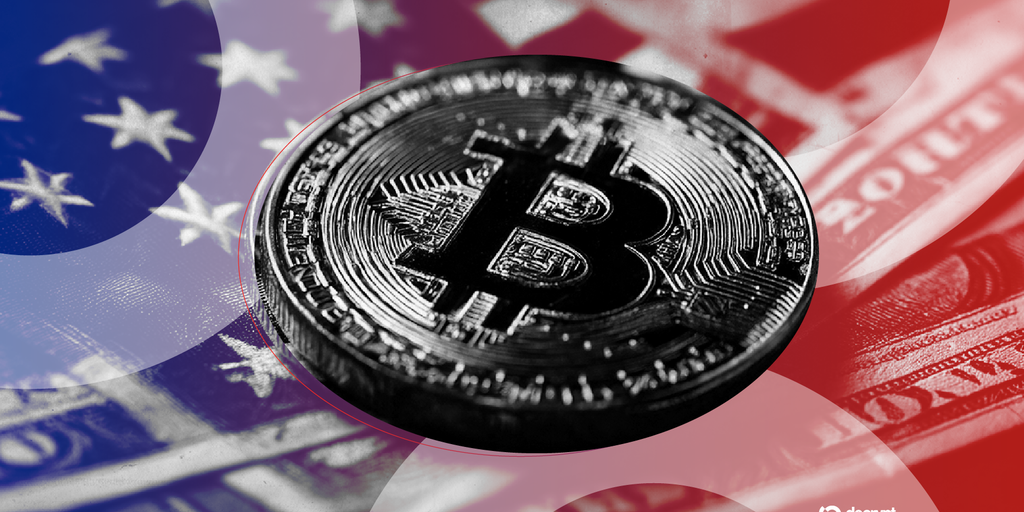In brief
- The U.S. seized $14.4 billion in Bitcoin from the alleged head of a global crypto scam network on Tuesday, in the DOJ’s largest-ever crypto seizure.
- Prosecutors are seeking to claim the funds through criminal forfeiture, raising questions about whether the Bitcoin will go to victims or be added to a national strategic Bitcoin reserve.
- Lawmakers like Sen. Cynthia Lummis (R-WY) are pushing to direct the funds into the reserve, while others warn restitution could take years.
The U.S. government now possesses an additional $14 billion more in Bitcoin. The only question is: What are they going to do with all that digital gold?
On Tuesday, the Department of Justice announced it had successfully seized over $14.4 billion worth of Bitcoin from Chen Zhi, the head of a Cambodia-based business conglomerate alleged to be at the center of a global crypto scam operation. The seizure is, by far, the largest in DOJ history.
Now, U.S. prosecutors have filed criminal wire fraud and money laundering charges against Chen, along with a legal request to formally obtain ownership over his seized Bitcoin via criminal forfeiture. Should they prevail, will that historic pile of Bitcoin be added to President Donald Trump’s new strategic Bitcoin reserve? Or will the funds be used to pay back Chen’s alleged victims?
A clear answer to that question may not materialize for some time. The Treasury Department, which oversees the nation’s Bitcoin holdings and was also directly involved in Chen Zhi’s case, did not respond to Decrypt’s request for comment about how it plans to use the seized funds.
But the potential impact of the U.S. government’s final decision on the matter, with this amount of Bitcoin on the line, is great. Already, some of the most prominent boosters of the president’s Bitcoin reserve plans have attempted to earmark today’s seized funds for that project.
“Turning criminal proceeds into assets that strengthen America’s Strategic Bitcoin Reserve shows how sound policy can turn wrongdoing into lasting national value,” Sen. Cynthia Lummis (R-WY), said Tuesday in a statement congratulating the Trump administration on its action against Chen Zhi.
🧵Second, codifying how seized bitcoin is stored, returned to victims, and safeguarded for future generations. Turning criminal proceeds into assets that strengthen America’s Strategic Bitcoin Reserve shows how sound policy can turn wrongdoing into lasting national value.
— Senator Cynthia Lummis (@SenLummis) October 14, 2025
The senator, who has proposed legislation that would obligate the U.S. government to purchase more than $100 billion worth of Bitcoin to bolster existing holdings of the token, added that Tuesday’s events underscore the need for Congress to pass laws codifying how seized Bitcoin is stored and returned to victims.
Scott Johnsson, a finance lawyer and venture capitalist focused on crypto, predicted the U.S. government would likely keep a “huge amount” of the seized Bitcoin. The remainder would be used for paying back victims, he figured—but only after a yearslong process of untangling the alleged scammers’ global laundering network and verifying the restitution claims of individuals in dozens of countries.
“This is the most extreme example of illicit fund seizures you can really imagine in terms of complexity,” Johnsson said on X.
Ari Redbord, a former U.S. Treasury official and federal prosecutor who now heads global policy at TRM Labs, told Decrypt it is difficult to predict how much of the newly seized Bitcoin the U.S. government might ultimately deposit into a strategic reserve, instead of using to make alleged victims whole.
“That is a really hard question,” he said.
Should the funds be added to an American Bitcoin reserve, they would likely significantly increase the value of that stockpile—though by how much, is also not currently known.
Blockchain analysis firm Arkham Intelligence currently estimates that U.S. government-controlled crypto wallets hold some $22 billion worth of BTC—which would mean this week’s haul of the coin would massively boost the value of a national Bitcoin reserve. But Arkham’s findings have never been confirmed by the federal government.
When President Trump signed an executive order in March establishing a strategic Bitcoin reserve, he ordered the Treasury Department, along with the White House’s crypto working group, to determine exactly how much of the cryptocurrency was currently in the government’s possession by April. By May, the Secretary of the Treasury was to deliver an evaluation to the White House regarding the “legal and investment considerations” for establishing the reserve.
In July, the White House released a sweeping report on crypto policy, which noted the Treasury Secretary did deliver such an evaluation to the White House, but omitted any findings about the scale of the U.S. government’s current Bitcoin holdings.
Both the Treasury Department and the White House did not respond to Decrypt’s request for comment regarding the state of the effort to determine how much Bitcoin the government currently holds.
Daily Debrief Newsletter
Start every day with the top news stories right now, plus original features, a podcast, videos and more.

